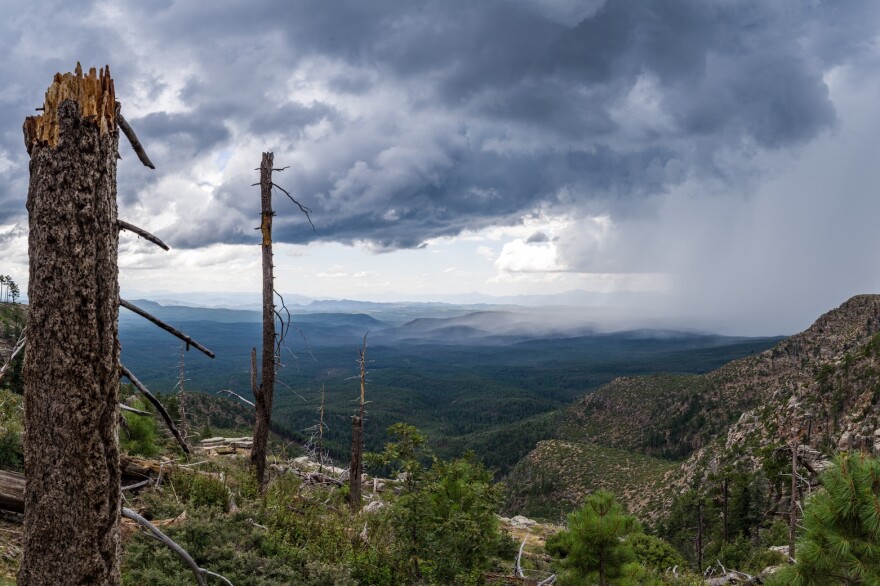A report from the United Nation’s Intergovernmental Panel on Climate Change says the planet has already warmed by one degree Celsius due to human activity since the Industrial Revolution and it’s on track to get hotter. Thousands of experts contributed to the report, which warns the world’s carbon emissions need to reach “net zero” by the year 2050 to avoid catastrophic environmental changes. KNAU’s Melissa Sevigny spoke with Northern Arizona University scientist Christina Schädel about the findings.
So what kind of changes are we seeing from climate change here in Arizona?
Imagine if we have any more days in Phoenix for example where temperatures go above 100 degrees F, and there will be even more when it goes above 115. So we have this already now sometimes in the summer, and it’s not pleasant, and if we have even more, you have skyrocketing air conditioning costs, for example. Another aspect is that the water supply in Arizona is going to change drastically and it’s going to become very unreliable….. Every place will see some form of climate change. It will not be the same in every location, but there is literally no one who will not be affected by climate change.
So we’re talking about things that affect our economy, things that affect tourism for example, but also some of these things are potentially life threatening, things like heat waves?
Yes. Heat waves can very life threatening. The problem with that, you can have your car air conditioned and your house air conditioned but it will cost you a lot more in the future and not everyone can afford that. That’s an important aspect of climate change, there is this so-called climate injustice, which means rich people can cope with it to some extent better than people who have very little money.
Right, yeah, the report really emphasized that not everybody is going to feel the climate change effects equally.
That is very true. I think it’s important to say here in Flagstaff we may not be affected so much by sea level rise, but millions of people worldwide are affected by sea level rise. They often are amongst the poorest. The climate injustice topic is very difficult, there is a moral aspect to it.
This issue has a sense of urgency because of that. Do you think we can make the changes we need to make by 2050?
Yes, we can make the changes. We have to make them soon, immediately, basically. What is important to know, it’s not a geophysical impossibility, so we can still do it. But it needs a joint effort of governments, industry, and society, and we cannot rely on others to do something. We have to do it ourselves.
What we’re talking about, these are really big processes. And I think a lot of people when they hear about climate change, it feels like it’s too big of an issue, like there’s just nothing they can do. How you do personally deal with that?
I sometimes feel despair as well and I’m sometimes overwhelmed by the topic, but then I also realize being depressed about it is not going to change anything. There are things that every person can do that if we all do it, it really makes a difference. For example I try to bike to work and I reduce my electricity consumption at home, I eat less meat, things like this. But one thing everyone can do is vote for someone for who has an agenda that includes reducing greenhouse gas emissions and things like this. I think that’s an important aspect that you can do, because just riding your bike to work is probably not enough.
Christina Schädel, thank you so much for talking with me today.
You’re welcome, it was a pleasure.








